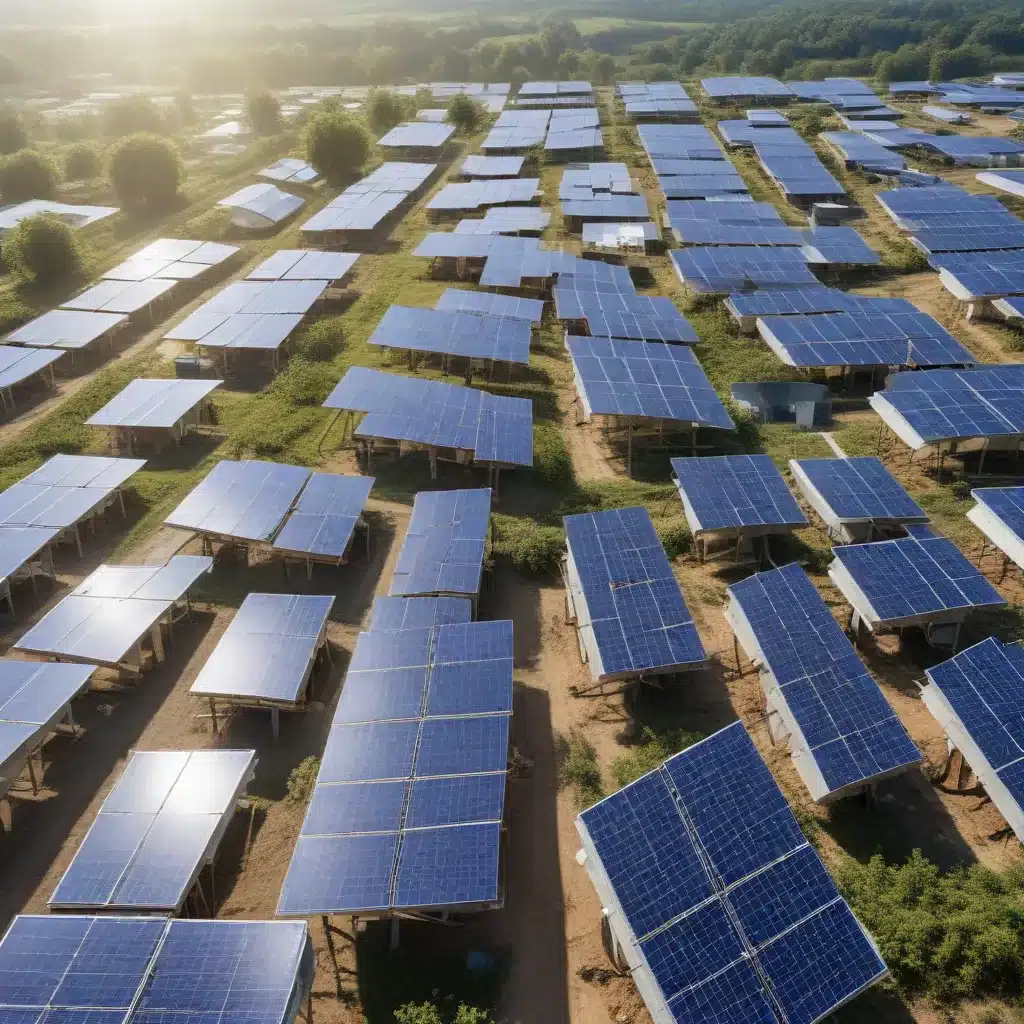
Unlocking the Potential of Renewable Energy in the Residential Sector
The Promise of Renewable Energy
Europe’s journey towards a sustainable energy future is gathering momentum, driven by ambitious climate goals and technological breakthroughs. At the heart of this transition lies the residential sector, where renewable energy solutions are poised to play a transformative role. As the continent strives to achieve its net-zero emissions targets, unlocking the potential of renewable energy in homes across Europe holds the key to a cleaner, more resilient energy landscape.
Renewable energy technologies, such as solar photovoltaics (PV), small-scale wind turbines, and ground-source heat pumps, offer homeowners the opportunity to generate their own clean energy, reduce reliance on fossil fuels, and contribute to the broader decarbonization efforts. These distributed energy resources not only empower individuals to take control of their energy consumption but also strengthen the resilience of the grid by diversifying the energy mix and reducing the strain on centralized power generation.
Barriers to Residential Adoption
Despite the compelling benefits of renewable energy, the residential sector has faced several barriers to widespread adoption. Upfront capital costs, complex permitting and regulatory frameworks, and a lack of public awareness have historically hindered the transition to clean energy solutions in homes. Moreover, the integration of renewable technologies with existing grid infrastructure and the need for energy storage solutions have presented technical challenges that must be addressed.
Economic Considerations
Addressing the economic barriers is crucial to accelerating the adoption of renewable energy in the residential sector. Innovative financing mechanisms, such as green mortgages, leasing programs, and on-bill financing, can help reduce the initial investment required by homeowners. Additionally, well-designed policy incentives, including feed-in tariffs, net-metering schemes, and tax credits, can make renewable energy more accessible and financially viable for households.
Harnessing Solar Power
The residential solar market has witnessed remarkable advancements in recent years, with solar PV technology becoming increasingly efficient, cost-effective, and user-friendly. Rooftop solar installations have emerged as a prime opportunity for homeowners to harness the abundant solar resource and generate their own clean electricity. Countries like Germany and the Netherlands have already seen significant growth in residential solar adoption, driven by supportive policies, such as net-metering and self-consumption schemes.
To further unlock the potential of solar power in homes, European policymakers must continue to streamline the permitting and interconnection processes, ensuring a seamless experience for homeowners. Initiatives like the EU’s Renewable Energy Directive and the Energy Performance of Buildings Directive have played a crucial role in promoting solar integration and energy efficiency in the built environment.
Exploring Wind Energy Solutions
While solar PV dominates the residential renewable energy landscape, small-scale wind turbines offer an alternative solution for homeowners, particularly in areas with consistent wind resources. These compact, quiet turbines can be installed on rooftops or in backyards, providing a reliable source of clean electricity. Community-based wind projects, where multiple households collaborate to invest in a shared wind asset, have also gained traction in some European countries, fostering a sense of local ownership and energy independence.
Navigating the regulatory landscape for small-scale wind power remains a challenge, with varying rules and guidelines across different jurisdictions. Streamlining the approval processes and addressing concerns related to noise, visual impact, and wildlife protection will be essential to unlocking the full potential of residential wind energy.
Geothermal Heating and Cooling
Beyond electricity generation, renewable energy solutions can also play a significant role in decarbonizing the heating and cooling of homes. Ground-source heat pumps, which leverage the stable temperatures of the earth or groundwater, have emerged as a highly efficient and sustainable alternative to traditional fossil-fuel-based heating and cooling systems. These technologies can provide both heating and cooling, reducing the overall energy demand and emissions associated with residential buildings.
Widespread adoption of geothermal systems, however, requires targeted policies, incentives, and technical support to address the upfront costs and installation complexities. Regulatory frameworks that recognize the long-term environmental and economic benefits of geothermal systems will be crucial in driving their integration into the residential sector.
Embracing Energy Storage
As the share of renewable energy in the residential sector increases, the need for reliable energy storage solutions becomes paramount. Battery storage technologies, coupled with advanced home energy management systems, allow homeowners to store surplus electricity generated by their solar PV or wind systems, optimizing self-consumption and reducing reliance on the grid during peak demand periods.
The integration of residential energy storage, both at the individual and community levels, holds immense potential for enhancing grid flexibility, reducing the need for costly grid infrastructure upgrades, and supporting the broader transition to a decarbonized energy system. Initiatives like the EU’s European Future Energy Forum provide a platform for stakeholders to explore the latest advancements and best practices in residential energy storage.
Fostering Collaboration and Innovation
The transformation of the residential sector requires a collaborative effort involving policymakers, utility providers, technology developers, and homeowners. Public-private partnerships can drive innovative financing models, streamline regulatory processes, and facilitate the widespread deployment of renewable energy solutions. Initiatives that engage local communities, empower homeowners, and foster a sense of ownership in the energy transition will be crucial in unlocking the full potential of renewable energy in homes across Europe.
As the continent continues its pursuit of a sustainable energy future, the residential sector stands as a pivotal battleground. By harnessing the power of renewable energy, European households can become active participants in the clean energy revolution, contributing to the collective goal of a net-zero carbon economy. The journey ahead may present challenges, but the promise of a cleaner, more resilient, and empowered residential sector is a future well worth unlocking.







